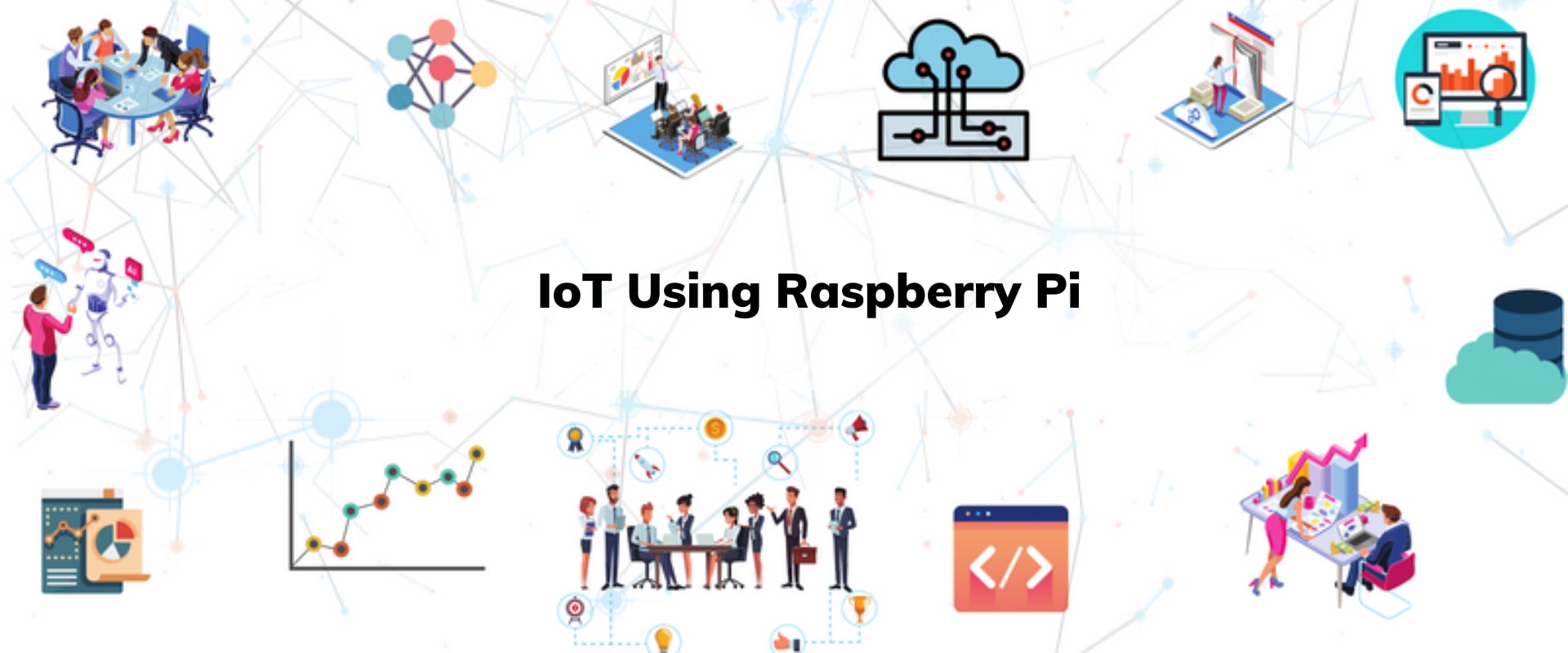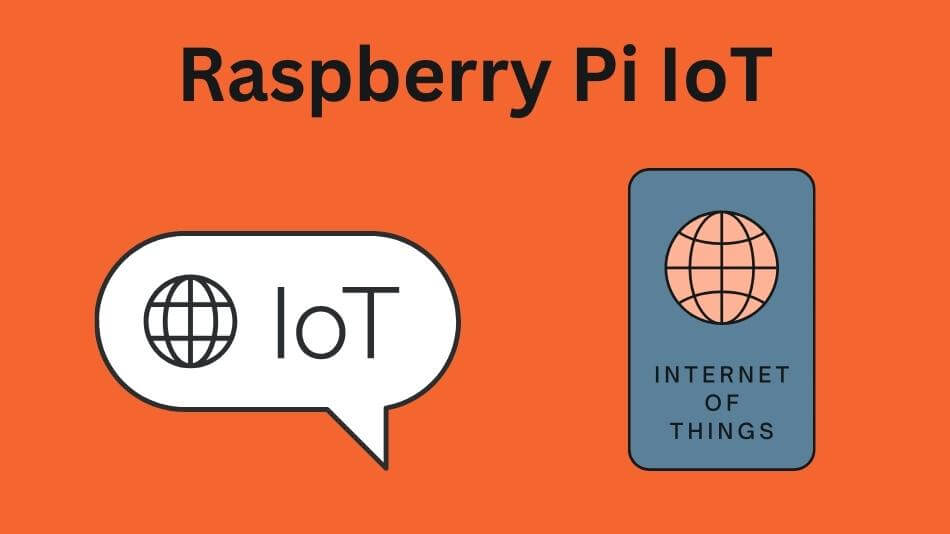The Internet of Things (IoT) is transforming the way we interact with technology, and Raspberry Pi is at the forefront of this revolution. As remote IoT platforms continue to evolve, developers and hobbyists can now create powerful, cost-effective projects with ease. This guide will walk you through the best free remote IoT platforms for Raspberry Pi, offering practical advice and technical insights to help you unlock the full potential of your projects.
In today's interconnected world, IoT is no longer a distant concept but a driving force behind innovation in industries and everyday life. At the heart of this transformation lies the Raspberry Pi, a compact and affordable single-board computer that empowers users to develop cutting-edge IoT solutions. Whether you're a beginner or an experienced developer, this guide is tailored to provide you with the tools and knowledge needed to succeed.
This article will delve into the top free remote IoT platforms for Raspberry Pi, offering comprehensive advice, technical details, and actionable tips. Our goal is to help you navigate the complexities of IoT development and empower you to build projects that make a real impact.
Read also:Jason Momoa Height
Table of Contents
- Exploring Free Remote IoT Platforms for Raspberry Pi
- Understanding Raspberry Pi
- Key Concepts of IoT
- Advantages of Free Remote IoT Platforms
- Best Free Remote IoT Platforms for Raspberry Pi
- Comprehensive Setup Guide
- Securing Your IoT Projects
- Practical Use Cases
- Maximizing IoT Platform Performance
- Emerging Trends in IoT and Raspberry Pi
- Final Thoughts
Exploring Free Remote IoT Platforms for Raspberry Pi
When it comes to IoT development, Raspberry Pi has emerged as one of the most versatile and accessible platforms available. Its affordability, flexibility, and robust community support make it an excellent choice for hobbyists and professionals alike. However, to fully leverage the capabilities of IoT, you need a reliable remote IoT platform that integrates seamlessly with Raspberry Pi.
Free remote IoT platforms provide a cost-effective way to manage and monitor IoT devices. These platforms offer essential features such as data visualization, device management, and remote access, all without the need for expensive subscriptions. In this section, we will explore the importance of these platforms in modern IoT projects and how they can enhance your Raspberry Pi setup, enabling you to focus on innovation rather than infrastructure.
Understanding Raspberry Pi
Raspberry Pi is a compact, credit-card-sized single-board computer designed to promote learning in computer science and electronics. Developed by the Raspberry Pi Foundation, this device has gained global recognition due to its versatility, affordability, and ease of use. Below are some of its standout features:
- Compact and lightweight design, making it ideal for portable projects.
- Supports a wide range of operating systems, including Raspbian, Ubuntu, and others.
- Equipped with GPIO pins, enabling seamless integration with sensors and actuators.
- Capable of running complex applications and services, making it suitable for advanced projects.
From building smart home systems and weather stations to developing industrial automation solutions, Raspberry Pi serves as the foundation for countless IoT projects. Its adaptability and affordability have made it a favorite among developers worldwide.
Key Concepts of IoT
What is IoT?
The Internet of Things (IoT) refers to a network of interconnected devices that communicate and exchange data over the internet. These devices can range from simple sensors to sophisticated machines, all designed to enhance efficiency, convenience, and automation across various sectors.
Core Components of IoT
Every IoT system relies on several fundamental components to function effectively:
Read also:Granblue Fantasy Relink Crossplay
- Devices: Sensors, actuators, and other hardware responsible for collecting and transmitting data.
- Connectivity: Protocols and networks that enable seamless communication between devices, such as Wi-Fi, Bluetooth, and cellular networks.
- Data Processing: Platforms and software that analyze and interpret data, providing valuable insights and enabling informed decision-making.
- User Interface: Dashboards and applications that allow users to interact with the system, making it accessible and user-friendly.
Raspberry Pi plays a central role in many IoT setups, acting as a central hub that connects devices, processes data, and facilitates communication with remote platforms.
Advantages of Free Remote IoT Platforms
Free remote IoT platforms offer numerous benefits for Raspberry Pi users, making them an attractive option for both beginners and advanced developers:
- Cost-Effective: Eliminates the need for expensive subscriptions or proprietary hardware, allowing you to focus your resources on innovation.
- Scalability: Enables you to expand your IoT network as needed, accommodating growth without significant investment.
- Accessibility: Provides remote access to your devices from anywhere in the world, enhancing convenience and flexibility.
- Community Support: Many platforms boast active communities that contribute to development and troubleshooting, ensuring you have access to valuable resources and expertise.
By leveraging these platforms, you can accelerate the development of your IoT projects while maintaining control over costs and infrastructure.
Best Free Remote IoT Platforms for Raspberry Pi
1. ThingsBoard
ThingsBoard is a powerful open-source IoT platform that supports Raspberry Pi and other devices. It offers advanced features such as real-time monitoring, data visualization, and rule engine capabilities. With its intuitive dashboard and comprehensive documentation, ThingsBoard is an excellent choice for both beginners and experienced users. Whether you're building a small-scale project or a large enterprise solution, ThingsBoard provides the tools you need to succeed.
2. Node-RED
Node-RED is a flow-based programming tool specifically designed for IoT applications. It integrates seamlessly with Raspberry Pi, offering a user-friendly interface for creating complex workflows. Node-RED is particularly useful for rapid prototyping and development, allowing you to bring your ideas to life quickly and efficiently. Its versatility and ease of use make it a popular choice among developers.
3. Home Assistant
Home Assistant is a leading platform for smart home enthusiasts, enabling you to control and monitor various IoT devices connected to your Raspberry Pi. With its extensive integrations and customization options, Home Assistant offers a versatile solution for home automation projects. Whether you're looking to control lighting, climate, or security systems, Home Assistant provides the tools you need to create a fully integrated smart home.
4. Freeboard
Freeboard is a lightweight IoT dashboard platform that allows users to visualize data from Raspberry Pi and other devices. Its simplicity and ease of use make it an ideal choice for small-scale IoT projects. With Freeboard, you can create custom dashboards that display real-time data, enabling you to monitor your devices and make informed decisions.
Comprehensive Setup Guide
Installing ThingsBoard on Raspberry Pi
Setting up ThingsBoard on your Raspberry Pi is a straightforward process. Follow these steps to get started:
- Install the latest version of Raspberry Pi OS on your device.
- Update your system by running the command:
sudo apt update && sudo apt upgrade. - Install the Java Development Kit (JDK) by executing:
sudo apt install default-jdk. - Download the ThingsBoard installation package from the official website.
- Follow the detailed installation instructions provided in the documentation.
Once installed, you can access the ThingsBoard dashboard via your web browser and begin configuring your IoT devices. With its intuitive interface and robust features, ThingsBoard is an excellent choice for IoT development.
Securing Your IoT Projects
Security is a critical consideration in IoT development, as it ensures the integrity and reliability of your systems. To protect your Raspberry Pi-based IoT projects, follow these best practices:
- Use strong, unique passwords for all devices and accounts to prevent unauthorized access.
- Enable encryption for data transmission using secure protocols like HTTPS or MQTT over TLS.
- Regularly update firmware and software to address vulnerabilities and ensure your system remains secure.
- Implement firewall rules to restrict unauthorized access and protect your network from potential threats.
By prioritizing security, you can safeguard your IoT projects and ensure they operate reliably and efficiently.
Practical Use Cases
Smart Agriculture
Raspberry Pi, combined with a free remote IoT platform, can revolutionize agriculture by enabling farmers to monitor soil moisture, temperature, and humidity levels in real time. This data can help optimize irrigation and fertilization strategies, leading to increased crop yields and reduced resource consumption. By leveraging IoT technology, farmers can make data-driven decisions that enhance productivity and sustainability.
Industrial Automation
In manufacturing environments, IoT platforms enable real-time monitoring of machinery performance and predictive maintenance. By integrating Raspberry Pi with sensors and remote platforms, businesses can improve efficiency, reduce downtime, and enhance overall productivity. These solutions empower organizations to stay competitive in an increasingly connected world.
Smart Homes
Home automation systems powered by Raspberry Pi and IoT platforms allow users to control lighting, climate, and security systems remotely. These solutions enhance convenience, energy efficiency, and safety in residential settings, making them an attractive option for homeowners looking to modernize their living spaces. With its versatility and ease of use, Raspberry Pi is an ideal platform for developing smart home solutions.
Maximizing IoT Platform Performance
To achieve optimal performance and reliability for your IoT projects, consider the following optimization techniques:
- Choose the right hardware for your specific use case, ensuring it meets the requirements of your project.
- Optimize data collection and processing to minimize latency and improve responsiveness.
- Leverage cloud-based services for scalable storage and computation, enabling you to handle large volumes of data efficiently.
- Implement caching mechanisms to improve response times and enhance user experience.
By fine-tuning your setup and focusing on performance optimization, you can create IoT projects that deliver exceptional results and exceed expectations.
Emerging Trends in IoT and Raspberry Pi
The IoT landscape is continually evolving, with new technologies and innovations emerging at a rapid pace. Some key trends to watch include:
- Edge Computing: Processing data closer to the source for faster decision-making and reduced latency.
- AI Integration: Incorporating artificial intelligence for advanced analytics, predictive maintenance, and automation.
- 5G Connectivity: Enabling faster and more reliable communication between devices, enhancing the capabilities of IoT systems.
Raspberry Pi will undoubtedly play a pivotal role in these advancements, providing a flexible and affordable platform for IoT innovation. As technology continues to evolve, Raspberry Pi will remain at the forefront of this revolution, empowering developers to create groundbreaking solutions.
Final Thoughts
Free remote IoT platforms for Raspberry Pi offer immense potential for developers and enthusiasts alike. By leveraging these platforms, you can create innovative, scalable IoT projects that address real-world challenges and make a meaningful impact. Remember to prioritize security, optimize performance, and stay informed about the latest trends in IoT technology to stay ahead of the curve.
We encourage you to share your thoughts and experiences in the comments below. Have you tried any of the platforms mentioned in this article? What projects are you currently working on? Don't forget to explore our other articles for more insights into IoT and Raspberry Pi development. Together, we can continue to push the boundaries of what's possible in the world of IoT.


